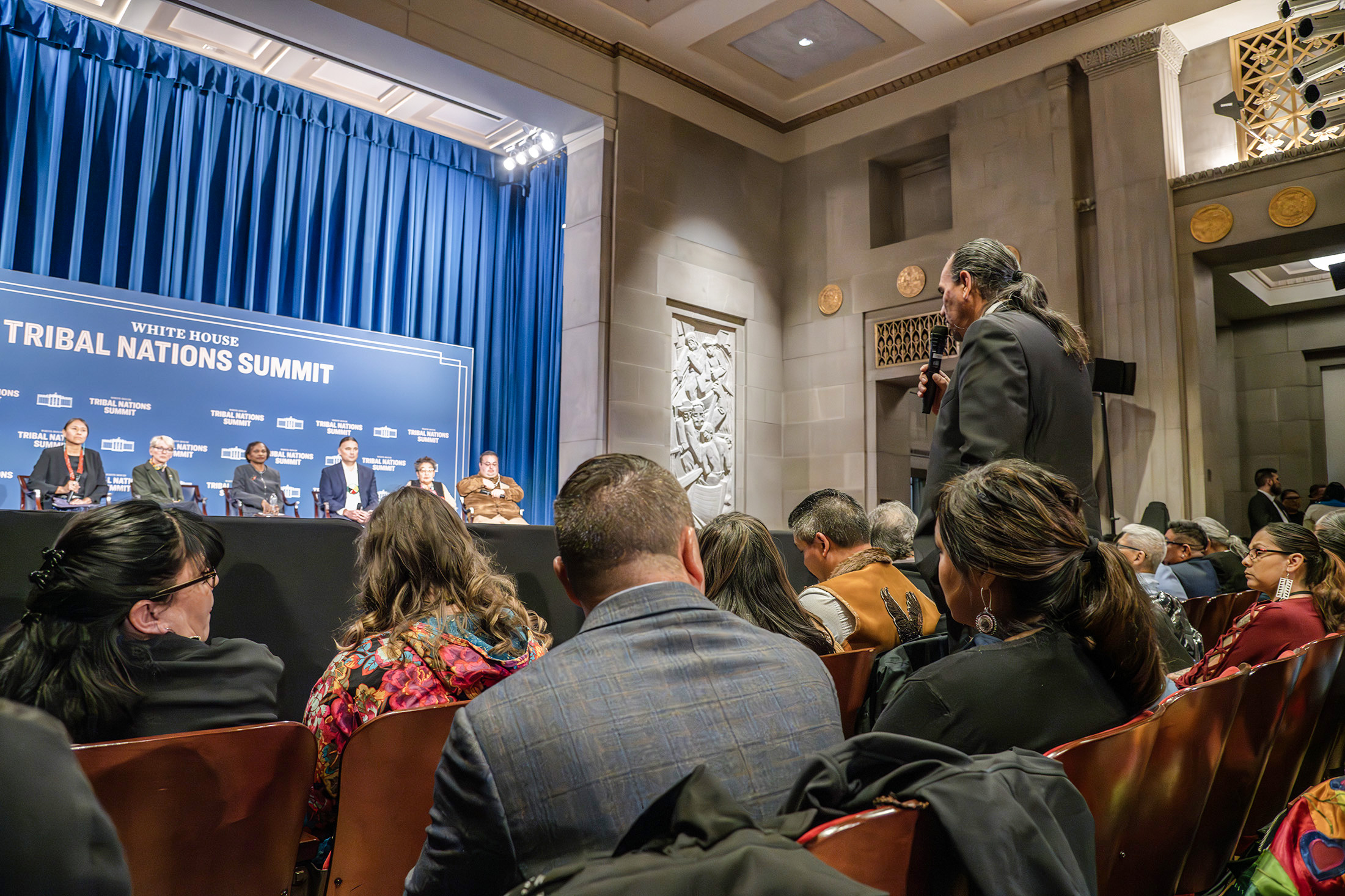Showing 496 results

Alejandro Camacho | January 27, 2026
The world’s ecosystems have been subject to an increasingly dangerous cocktail of stressors from land and ocean over-development, invasive species, and pollution. But rather than stem the tide of these harms, the Trump administration has resurrected several regulatory changes to the Endangered Species Act designed to stifle species’ protections and provide land developers even more power to destroy invaluable ecosystems.

Daniel Farber | January 9, 2026
In 2025, President Donald Trump rolled out new initiatives at a dizzying rate. That story, in one form or another, dominated the news. This year, much of the news will again be about Trump, but he will have less control of the narrative. Legal and political responses to Trump will play a greater role, as will economic developments. Trump’s anti-environmental crusade may run into strong headwinds.

Hannah Wiseman, Seth Blumsack | December 15, 2025
As projections of U.S. electricity demand rise sharply, President Donald Trump is looking to coal – historically a dominant force in the U.S. energy economy – as a key part of the solution. In an April 2025 executive order, for instance, Trump used emergency powers to direct the Department of Energy to order the owners of coal-fired power plants that were slated to be shut down to keep the plants running. But there remain limits to the president’s power to slow the declining use of coal in the U.S.

Rachel Mayo | November 25, 2025
This November, we honor the leadership, knowledge, and resilience of America’s first peoples, who have safeguarded the land, water, and air that sustain us all.

Minor Sinclair | November 12, 2025
After nearly five years of serving this amazing organization and its inspiring community of scholars, advocates, and activists, I’ll be stepping down as executive director of the Center for Progressive Reform.

Daniel Farber | July 21, 2025
President Donald Trump is on a rampage. He has big plans for a mass repeal of existing regulations, he’s trying to use emergency declarations to short-circuit normal environmental protections, and he’s savaging environmental agencies. He’s also at war with the rule of law, dodging court orders, ignoring statutes, and punishing lawyers and law firms that have dared to challenge him. In area after area, Trump has tried to sweep aside legal constraints. Part of the point of Trump’s “shock and awe” campaign has been to overwhelm the ability of opponents and the courts to keep up with his legally questionable actions. Trump’s attack on the bureaucracy is also an attack on the rule of law because one of the key functions of bureaucrats is to ensure that the government follows the rules.

Daniel Farber | July 8, 2025
In one of President Donald Trump’s first executive orders, he eliminated a centralized system that Jimmy Carter initially set up to issue regulations governing environmental impact statements. Instead, he called on each agency to issue its own regulations, which seems to have caused the predictable amount of confusion. I’ve examined the new regulations from three agencies: the Department of Defense (DOD), the Department of Energy (DOE), and the Department of Transportation (DOT), which happened to be the first ones that I saw. There seems to be little rhyme or reason in the variations.

Catalina Gonzalez | July 1, 2025
At the center of the Republican reconciliation bill that the U.S. Senate just sent back to the House is a renewal of President Donald Trump’s 2017 Tax Cuts and Jobs Act that was originally set to expire at the end of this fiscal year. Republicans have been working graveyard shifts to force a vote before the July 4th holiday to lock in even bigger tax breaks for the wealthiest five percent of Americans for the next 10 years. To pay for this, as well as increases in immigration enforcement operations, congressional Republicans are proposing an historic $1.7 trillion in cuts to healthcare, food assistance, and clean energy jobs.

Alejandro Camacho, Robert L. Glicksman | June 30, 2025
NEPA requires government agencies to use a transparent process with meaningful public participation to consider the potential environmental effects of their actions before committing to them. It is one of the United States’ bedrock environmental protection statutes and has been so widely emulated in other countries that it has become known as the “Magna Carta” of global environmental law. In the U.S., however, NEPA has recently been the subject of withering scrutiny and attack by critics across the political spectrum. Its opponents have called for the narrowing of NEPA’s scope and the “streamlining” of its processes, charging that the Act’s core mandate to “look before you leap” has spun out of control and created unintended and massive obstacles to approval of critical infrastructure.